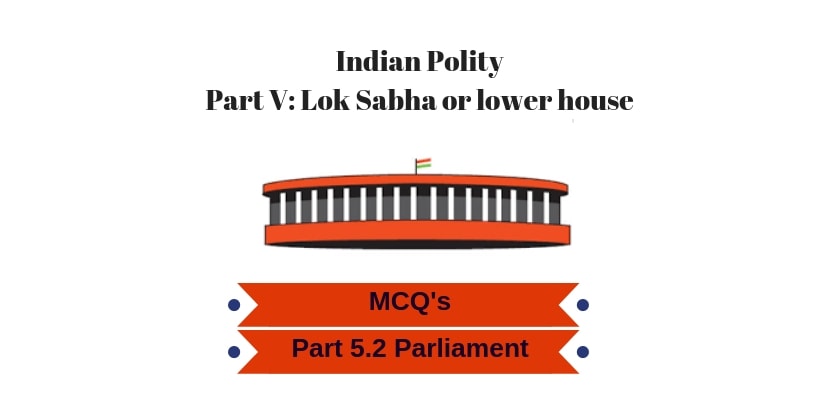31. Who was the first president of Lok Sabha of independent India?
A. Hukam Singh
B. Baliram Bhagat
C. Ravi Rai
D. G.V. Mavlankar
[toggle] Answer – D
Explanation: Ganesh Vasudev Mavalankar popularly known as Dadasaheb was the President (from 1946 to 1947) of the Central Legislative Assembly, then Speaker of the Constituent Assembly of India, and later the first Speaker of the Lok Sabha.[/toggle]
32. At least how many sessions of the Lok Sabha are called?
A. Once a year
B. Twice a year
C. thrice a year
D. Four times a year
[toggle] Answer – B [/toggle]
33. Which state does the most representative send in the Lok Sabha?
A. Bihar
B. Madhya Pradesh
C. West Bengal
D. Uttar Pradesh
[toggle] Answer – D [/toggle]
34. Who defeated Mrs. Gandhi in the 1977 Lok Sabha elections?
A. Morarji Desai
B. Raj Narain
C. Charan Singh
D. JP Narayan
[toggle] Answer – B [/toggle]
35. The Speaker of Lok Sabha is elected by
A. all the members of Parliament
B. the people directly
C. all the members of Lok Sabha
D. the members of the majority party in the Lok Sabha
[toggle] Answer – A [/toggle]
36. The maximum strength of the Select Committee of the Lok Sabha is
A. 10 members
B. 5 members
C. 15 members
D. Not fixed and varies from Committee to Committee
[toggle] Answer – D [/toggle]
37. A resolution for the revocation of the proclamation of National Emergency may be moved by:
A. ten members of Rajya Sabha
B. ten members of Lok Sabha
C. ten members of Parliament
D. one-tenth of the total membership of Lok Sabha
[toggle] Answer – D [/toggle]
38. Who is the Prime Minister who did not participate in the session of Parliament during his tenure?
A. Atal Bihari Vajpayee
B. Chandrasekhar
C. V. P. Singh
D. Chaudhary Charan Singh
[toggle] Answer – D [/toggle]
39. adopted in 2001, the purpose of Code of Conduct for members of Lok Sabha is-
A. To stop proceedings, stop the entry of the ‘Well’ of the House
B. Not sloganeering in the House
C. Not talking when Speaker stands
D. not promoting absence
[toggle] Answer – A [/toggle]
40. According to Article 75 (3) of the Constitution of India, the Council of Ministers is collectively responsible for which of the following?
A. President
B. Parliament
C. Lok Sabha
D. Rajya Sabha
[toggle] Answer – C [/toggle]

